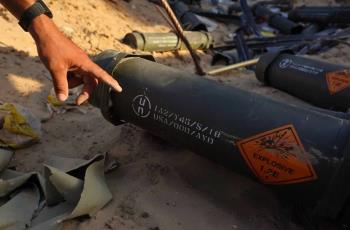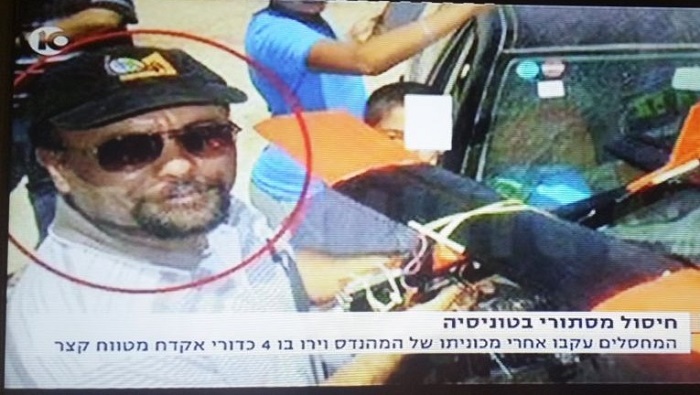Alwaght- On December 15, two gunmen assassinated Mohammad Zawari, the Tunisian Aviation engineer, in front of his home in Al Ain, near Sfax province, making Tunisia lose one of its most genius scientists who was a drone expert.
A judicial spokesman told the Tunisian radio Shems FM that eight Tunisian nationals had been arrested in connection with the killing, Reuters reported.
One of the suspects was a Tunisian journalist based in Hungary, two other suspects, one of them a Belgian of Moroccan origins, are still at large, said Reuters, quoting a local official.
Palestinian Hamas’s military wing Qassam Brigades has announced that the Tunisian aviation engineer was member of the group for nearly 10 years, supervising a program for making drones.
The killing was blamed on the Israeli intelligence service Mossad, which has a long record of assassination operations of this fashion in different countries.
The Ennahda Movement in Tunisia condemned the murder, asking the security institutions to find and bring to justice those responsible because “it poses a threat to the Tunisians' security and stability of Tunisia.”
Zawari's Record and links
Mohammad Zawari, 49, lived in exile for over 20 years when the former Tunisian dictator Zine El Abidine Ben Ali was holding the power in the country. Zawari was arrested in 1991 after unrest began to hit the country, essentially in the universities.
Following his release, Zawari left the country, choosing Libya as his first station. Not staying long there, Zawari left to Sudan and then Syria. He married a Syrian in 2008. He remained in Syria for nearly 20 years before he returned home when the 2011 revolution toppled the dictator Ben Ali.
At home, Zawri worked as a technical manager at a mechanical engineering company. Some resources also noted that he worked as a pilot in Tunisair airline.
Short after his killing, Qassam Brigades declared that the Tunisian engineer joined the movement when he was in Syria, helping the resistant group to develop its own spy drones.
One of his projects in association with Qassam Brigades was the Ababil drones that were used for reconnaissance missions when the Israeli regime waged a war on Gaza in 2014, Qassam Brigades' statement acknowledged.
The Palestinian group accused the Israeli regime of killing its scientist, hinting to retaliate as it called it “an aggression against the Palestinian resistance”.
“The enemy must know the blood of the leader Zawari will not go in vain,” the statement by Qassam Brigades read.
The Israeli media have focused on Zawari’s role in development of the Palestinian potentials to face the Israeli regime.
The Israeli Channel 2 has told of his joining the Hamas's camps in Syria and Lebanon. The news channel also reported that he frequently visited Turkey.
He, additionally, visited the besieged Gaza Strip three times via the tunnels and supervised a project for boosting the Palestinian military power, including aerial power. Ababil drones project was actually a showcase of his engineering capabilities and technological intelligence.
Ronen Bergman, an Israeli journalist with close ties to Israeli regime's intelligence services, has said that the accusations that put Tel Aviv behind the killing “are not baseless”, adding that the killers successfully left Tunisia.
Aaron Hiller, a political analyst for Channel 2 has told the news network that Tel Aviv grew concerns about the contributions Zawari could make in the future wars with the Israeli regime. He added that Hamas tried to get its engineer's help to manufacture drones with capability of carrying explosives to strike deep in the Israeli territories.
This is not the first time the Israeli intelligence service is accused of assassinating scientists. Tel Aviv targeted several Iranian scientists working for the country’s nuclear program, as it killed many Iraqi scientists following fall of Saddam Hussein in 2003.



























